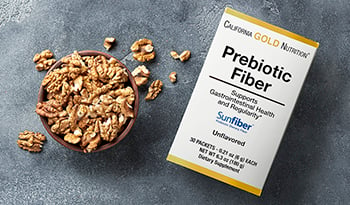Best of 2020: Top 5 Supplements for Health
DISCLAIMER:This blog does not intend to provide diagnosis...
- In this article:
- 5. Vitamin D
- 4. Collagen
- 3. Whey Protein
- 2. Probiotics
- 1. Omega-3 Fatty Acids/Fish Oil
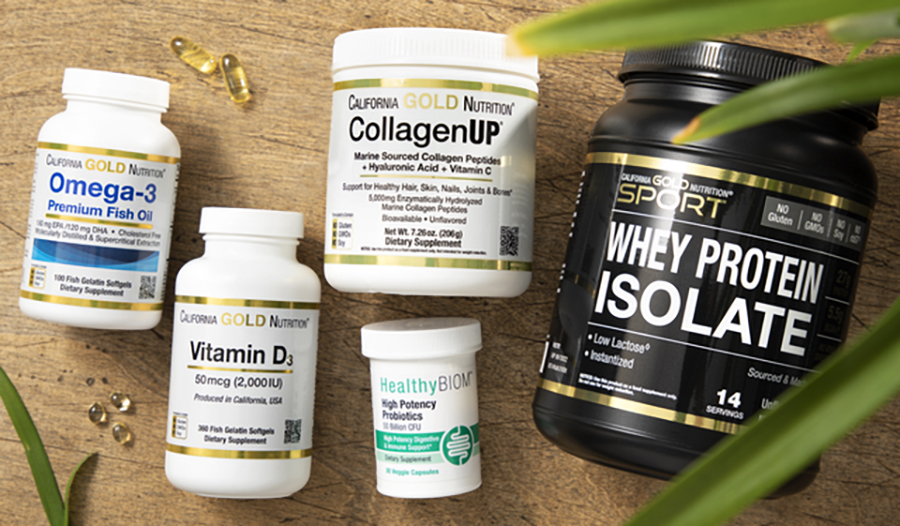
2020 has been a challenging year for many people around the world. Despite the unique challenges we have all faced, we strive to keep ourselves, family, and friends as healthy as possible. Consuming a well-balanced, nutritious diet, and getting adequate physical activity is vital in ensuring our minds and bodies are able to handle the stresses and challenges that may come our way. Nutritional supplements also play an important role in the lives of many who seek optimal wellness. Below are iHerb’s top 5 supplements of 2020.
5. Vitamin D
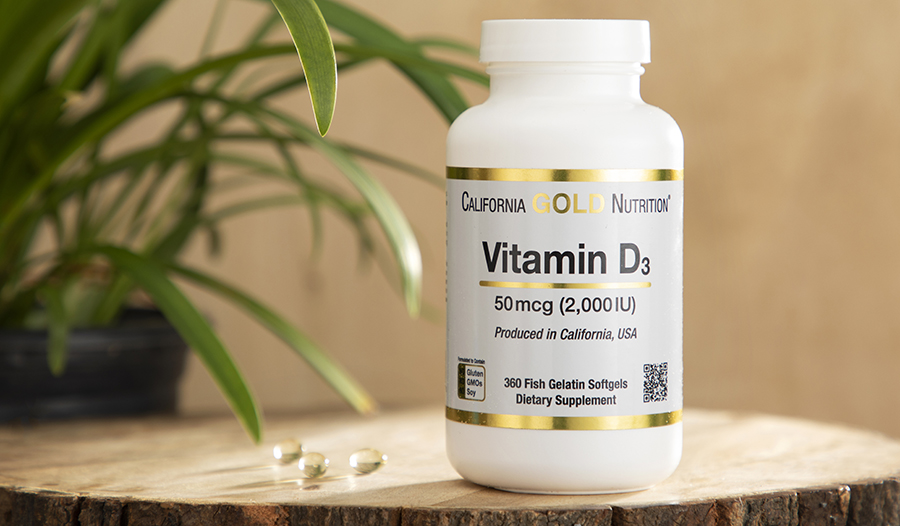
If there is one vitamin in the world that can help optimize a person’s health and immune system, it’s vitamin D (also known as vitamin D3 or cholecalciferol). Traditionally, vitamin D deficiency was associated with the bone disease rickets, but since the disease is now rare, many assume vitamin D deficiency does not exist.
Fortunately, this very necessary vitamin can be generated by the body for free with time spent in the sun—ultraviolet B (UV-B) light waves from the sun react with a unique form of cholesterol in our skin to create the vitamin D hormone.
Thousands of studies over the last decade show health benefits when vitamin D intake is optimized. These studies tell us that those with higher levels of vitamin D in their blood have a lower risk for heart attacks, breast cancer, colon cancer, multiple sclerosis, type 1 and type 2 diabetes, high blood pressure, and other health complications. Vitamin D appears to also be beneficial in preventing upper respiratory infections.
A 2020 study concluded, “Vitamin D supplementation was safe and it protected against acute respiratory tract infection overall.”
How Common Is A Deficiency?
In my Southern California medical practice, a place where we have sunny skies more than 300 days per year, four in five (80 percent) of my patients have clinical vitamin D deficiency, defined when the vitamin D blood level is 30 ng/ml (75 nmol/l) or lower.
What Are The Risks Of Low Vitamin D Levels?
High Blood Pressure (Hypertension): High blood pressure affects one in four adults. Worldwide, 1 billion people have high blood pressure, which is a leading risk factor for heart attacks, congestive heart failure, and strokes. While there are many reasons a person develops high blood pressure, studies show that men with lower levels of vitamin D are six times more likely to have hypertension while women were almost three times more likely. Maintaining a healthy weight, consuming a diet high in fruits and vegetables, and doing routine exercise helps control blood pressure, too. It is important to know that vitamin D supplementation has not been shown to lower blood pressure and blood pressure medications should not be stopped without first consulting with your physician.
Heart Attacks: A Harvard University study showed that people with higher levels of vitamin D in their blood had 80 percent less risk of heart attacks when compared to those with the lowest blood levels.
A study from Germany showed those with lower vitamin D blood levels were five times more likely to die from sudden cardiac death when compared to those with higher vitamin D blood levels. Many other studies have shown similar results.
Other Conditions Associated With Vitamin D Deficiency
Numerous other studies show those with lower vitamin D levels have higher rates of the following: dementia, strokes, peripheral artery disease, breast cancer, colon cancer, prostate cancer, ovarian cancer, pancreatic cancer, fibromyalgia, falls, fractures, multiple sclerosis, lupus, rheumatoid arthritis, asthma, autism, psoriasis, and much more.
What About Vitamin D Toxicity?
Vitamin D “toxicity” is rare with daily doses of 10,000 IU or less. Those with advanced chronic kidney disease, high-calcium blood levels, or lymphoma need to consult with their physician before supplementing with vitamin D.
Check Your Vitamin D Level
Ask your doctor to check your vitamin D blood level. She will need to order a vitamin D 25-OH blood test. Most laboratories report normal results being between 30 ng/ml (75 nmol/l) to 100 ng/ml (125 nmol/l). However, an optimal vitamin D blood level should be between 50 ng/ml to 100 ng/ml (125 nmol/l to 225 nmol/l).
Most deficient adults will need to take a daily dose of vitamin D (cholecalciferol), ranging from 2,000 to 5,000 IU of vitamin D. Some may need more. On average, 1,000 IU daily will raise the blood level by 10 ng/ml (12.5 mmol/l). Pregnant women and breastfeeding mothers should consult with their obstetrician and pediatrician, respectively.
4. Collagen
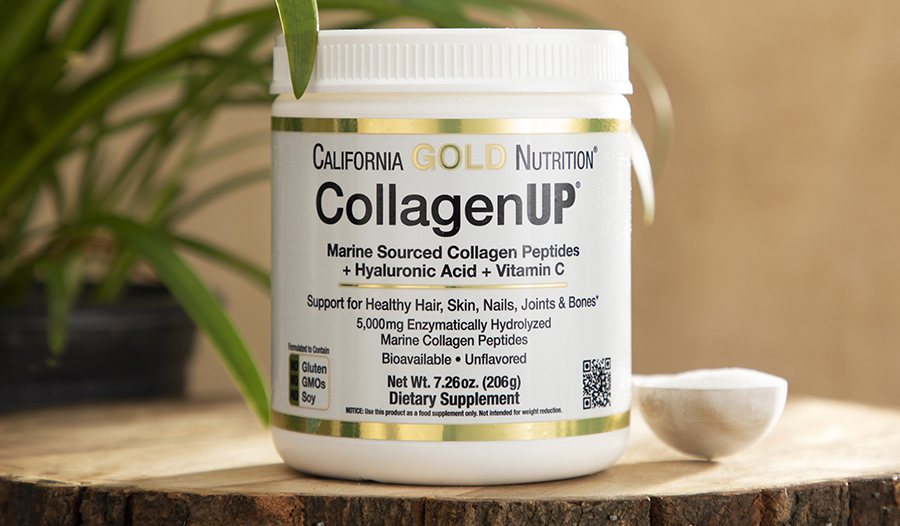
Muscles, bones, skin, and tendons are composed primarily of collagen, the most abundant type of protein in the human body. To be specific, collagen consists of 30-35 percent of all the proteins in the human body. Collagen protein is also known as connective tissue and is responsible for stabilizing our skin and maintaining joint movement and flexibility. In addition, collagen provides our skin with elasticity.
As we age, our skin loses its elasticity and becomes more wrinkled. The are many reasons for this—reduced ability to manufacture collagen is partly responsible while life’s stressors and oxidative damage also play a significant role. Those with extra melanin in their skin are more protected from ultraviolet sunlight and ultraviolet damage, which I call “melanoprotection.” However, those with less melanin are at higher risk for solar damage and increased risk for premature aging.
Collagen supplements usually consist of the following amino acids, which scientists separate into three categories:
- Essential amino acids
- Conditionally essential amino acids
- Non-essential amino acids
Collagen is a good option for those who may want to ensure they are getting adequate amino acids but want to consume them using gluten- and dairy-free supplements.
Scientists have identified at least 28 types of collagen. However, 90 percent of the collagen in the human body is Type 1, Type 2, Type 3, and Type 5.
How We Destroy Our Collagen
Collagen levels start to diminish after age 35. Smoking is the number one activity a person can do to destroy and lose their collagen—it is the main reason a smoker often appears older than his or her chronological age. Exposure to excessive sunlight and frequent sunburns damage our collagen, as does a high-sugar diet that is low in antioxidants.
Foods Which Increase Collagen Production
- Vitamin A-rich foods such as carrots, sweet potatoes, apricots, and eggs
- Green leafy vegetables such as kale, spinach, and broccoli
- Onions and garlic are rich in sulfur, which is essential for cartilage production
- Blueberries and raspberries provide antioxidant protection
- Oranges and strawberries are high in vitamin C, which is needed for collagen production
- Bell peppers are high in vitamin C
- Nuts, like almonds, walnuts, and seeds, are high in amino acids
- Bone broth contains the building blocks of collagen
Collagen, Joint, And Bone Health
Scientific studies have shown that collagen supplementation can be helpful in optimizing joints and helping bone strength. Consuming a healthy diet and being physically active is also crucial to joint health. Collagen can help with the following:
- Arthritis pain and improve cartilage in joints
- Increase overall bone strength in those with osteopenia and osteoporosis
- Improve tendon strength, according to studies
Collagen And Skin Health
Studies show that collagen supplementation has numerous benefits for the skin. It is estimated that during our mid-thirties, we start to lose about one percent of our body’s collagen yearly. Supplementing with collagen should be considered. Studies show collagen can help with the following:
- Reduce cellulite in women as early as three m months into usage
- Reduce the appearance of facial wrinkles and improved skin elasticity
- Anti-aging properties
- Improved nail and hair growth
Lastly, collagen helps support intestinal health. A primary reason is the high levels of the amino acid glutamine, or glutamic acid, in oral collagen supplements. Glutamine provides “food” for our gut’s healthy bacteria. Learn more about Leaky Gut and other ways to optimize gut health.
There are various formulations of oral collagen supplements available. Some are of bovine (cow) origin while others are marine (fish) in origin. Most who supplement take at least 3,000 to 5,000 mg daily. In order to help optimize collagen production, taking an additional 1,000 to 2,000 mg of vitamin C should be considered.
3. Whey Protein
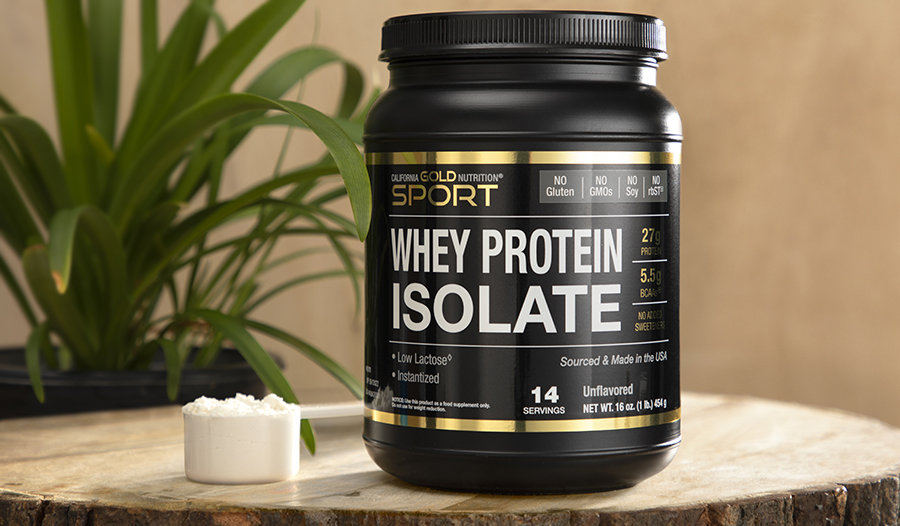
Proteins are essential for the development and functioning of all life. They are composed of amino acids, which are known as the building blocks of protein. Worldwide, protein deficiency is a growing health concern in developing countries and accounts for 30-40 percent of hospital admissions in developing countries. This is due primarily to inadequate dietary intake of protein. Foods rich in protein include meats, poultry, seafood, eggs, cheese, seeds (pumpkin, sesame, and sunflower), and beans (kidney, pinto, black, and soy).
Whey protein, the liquid portion byproduct of the cheesemaking process, is rich in branched-chain amino acids and essential amino acids. It also contains functional peptides, antioxidants, and immunoglobulins, which help strengthen the immune system. The protein in cow’s milk is 20 percent whey and 80 percent casein, while human milk is 60 percent whey, 40 percent casein.
While commonly consumed by athletes and weightlifters, whey protein can be used by everyone. Whey is frequently used as a meal replacement by individuals who are trying to maintain or lose weight. It is also a popular source of protein for those trying to build muscle and also helps reduce appetite.
Health Benefits Of Whey Protein
- Provides an excellent source of protein
- Encourages muscle growth
- Lowers blood pressure
- Lowers blood sugar
- Lowers cholesterol levels
- Helps the liver remove toxins
A 2010 study in the British Journal of Nutrition evaluated whey’s effect on cholesterol, sugar, and insulin levels in obese test subjects. They compared it to glucose and casein, the other protein component in milk. In total, the study lasted 12 weeks, and by the end, there was no change in weight. However, those who consumed the whey protein saw their serum triglycerides, total cholesterol, and LDL (bad) cholesterol reduced. In addition, their fasting insulin levels were reduced, which is a good thing as elevated insulin levels are a risk factor for high blood pressure and heart disease.
Lastly, a 2017 study looked at 34 women who had undergone weight loss surgery two years prior. Half the women were placed on a low-calorie diet and whey protein while the other half consumed only a low-calorie diet. Both groups lost weight, but the fat loss was greater in those who consumed the whey protein.
Whey protein is a great addition to a fruit and vegetable smoothie. Alternatively, it can be mixed with water or milk or even a bowl of oatmeal. Suggested dose: As directed on the label.
2. Probiotics
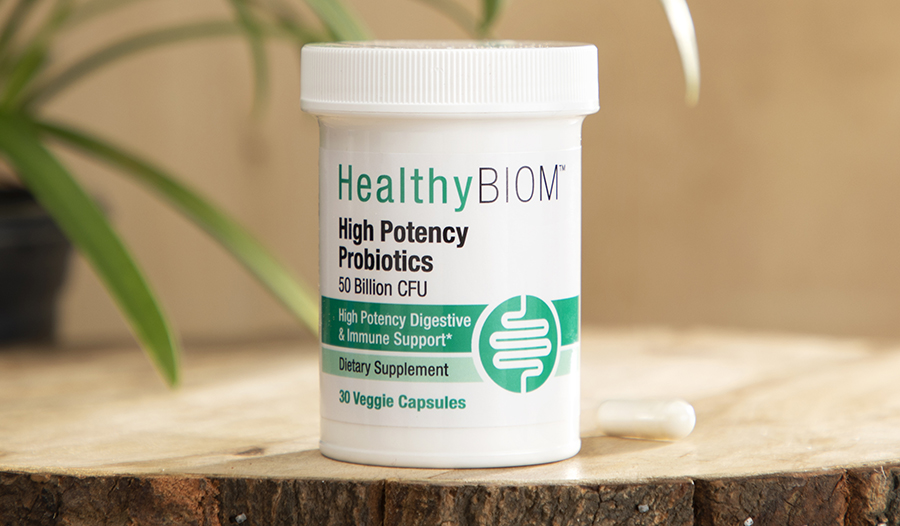
Probiotic supplements are beneficial bacteria that are consumed in an effort to optimize intestinal health. Over 2,000 years ago, Hippocrates stated that “All diseases begin in the gut”. Using this foundation, ensuring intestinal health is crucial to ensuring overall health and wellness.
Medications such as antibiotics and acid reducers can have a negative effect on gut health. In addition, a diet low in nutritious foods but high in sugar and processed foods can result in gastrointestinal symptoms and may increase the risk for various auto-immune and other systemic diseases.
Health Benefits of Probiotics
- Soothing digestive issues
- Helping relieve infantile colic
- Irritable bowel syndrome management
- Crohn’s disease and ulcerative colitis management
- Preventing urinary tract infections
- Preventing yeast infections
- Helping prevent clostridium difficile infections of the gut
- Helping prevent auto-immune diseases (rheumatoid arthritis, lupus, multiple sclerosis, etc.)
- Helping reduce depression and anxiety symptoms
A 2015 study also suggested that probiotics may be beneficial in preventing upper respiratory tract infections when compared to a placebo. This makes sense when one considers that up to 80 percent of the immune system is in the intestinal tract.
Probiotics come in capsules, chewables, powders, and sometimes gummy formulas. They are considered safe for all ages and anyone with a healthy functioning immune system. Those who are immune-compromised should consult with their physician prior to taking a probiotic. I personally prefer formulations where refrigeration is optional as they are likely more stable.
The minimal dose recommended for children and adults is usually 5 billion CFU (colon forming units). Teens and adults can take up to 100 billion CFUs once or twice per day.
1. Omega-3 Fatty Acids/Fish Oil
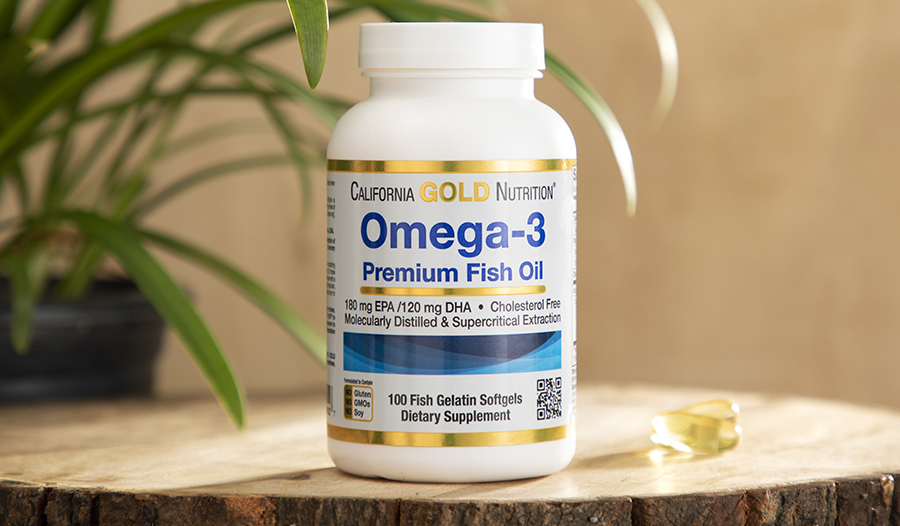
Omega-3 fatty acids are also known as PUFAs (short for polyunsaturated fatty acids). They play an important component in human health and are believed to have numerous benefits for heart health, brain health, gut health, joint health, and more. It is believed that resolvins — omega-3 metabolites — are the substances that help reduce inflammation levels, according to studies.
Omega-3 fatty acids include:
- Alpha-linolenic acid (ALA, an omega 3), which can be found in flaxseed, walnuts, soy, chia seeds, and hemp seeds.
- Eicosapentaenoic acid (EPA; or icosapentaenoic acid) is commonly found in fish oil, krill oil, and eggs (if the chickens were fed EPA).
- Docosahexaenoic acid (DHA) is an omega-3 fatty acid that is a big component of the human brain, skin, and eyes. Although important, it is not considered “essential” since it can be manufactured by the body when alpha-linolenic acid (ALA) is consumed.
Ninety percent of Americans do not meet the American Heart Association recommendation of two 3.5 ounce servings (100 grams) of low-mercury-containing fish per week. This will provide about 1,750 mg EPA/DHA per week. A 2014 study also confirmed that the majority of US adults do not meet the weekly recommendations for omega-3 fatty acid consumption. Many others around the world also consume insufficient amounts.
Omega-3 fatty acids may be beneficial for the following health conditions and purposes:
- ADHD
- Anxiety
- Arthritis pain
- Asthma
- Depression
- Heart disease
- Helping to reduce triglycerides
- Migraine headache prevention
- Traumatic brain injury recovery
Those consuming a vegetarian or vegan diet should take care to ensure an adequate intake of seaweed, flaxseed, walnuts, soy, chia seeds, hemp seeds, edamame, and kidney beans. This will help ensure adequate blood levels of essential fatty acids.
References:
- Moro, K., Nagahashi, M., Ramanathan, R., Takabe, K., & Wakai, T. (2016). Resolvins and omega three polyunsaturated fatty acids: Clinical implications in inflammatory diseases and cancer. World Journal of Clinical Cases, 4(7), 155-64
- Am J Clin Nutr. 2015 Dec;102(6):1357-64. doi: 10.3945/ajcn.115.116384. Epub 2015 Nov 11.
- Accessed February 11, 2019 https://www.heart.org/en/healthy-living/healthy-eating/eat-smart/fats/fish-and-omega-3-fatty-acids
- Papanikolaou, Yanni, Brooks, James, Reider, Carroll, & Fulgoni, Victor L. (2014). U.S. adults are not meeting recommended levels for fish and omega-3 fatty acid intake: Results of an analysis using observational data from NHANES 2003-2008. Nutrition Journal,13(1), Nutrition Journal, April 2, 2014, Vol.13(1).
- Hao Q, Dong BR, Wu T. Probiotics for preventing acute upper respiratory tract infections. Cochrane Database Syst Rev. 2015 Feb 3;(2):CD006895. doi: 10.1002/14651858.CD006895.pub3. PMID:25927096.
- Jay R. Hoffman & Michael J. Falvo (2004). "Protein - Which is best?". Journal of Sports Science and Medicine (3): 118–130.
- Luhovyy BL, Akhavan T, Anderson GH (2007). "Whey proteins in the regulation of food intake and satiety". Journal of the American College of Nutrition. 26 (6): 704S–712S.
- J Am Coll Nutr. 2017 Oct 31:1-11. doi: 10.1080/07315724.2017.1344591. Benefits of Whey Protein [Epub ahead of print]
- Br J Nutr. 2010 Sep;104(5):716-23. doi: 10.1017/S0007114510000991. Epub 2010 Apr 9.
- Accessed October 27 th 2019 https://link.springer.com/article/10.1007%2Fs11695-016-2308-8
- https://en.wikipedia.org/wiki/Collagen
- Lugo JP, Saiyed ZM, Lane NE. Efficacy and tolerability of an undenatured type II collagen supplement in modulating knee osteoarthritis symptoms: a multicenter randomized, double-blind, placebo-controlled study. Nutr J. 2016;15:14. Published 2016 Jan 29. doi:10.1186/s12937-016-0130-8
- Dar Q-A, Schott EM, Catheline SE, et al. Daily oral consumption of hydrolyzed type 1 collagen is chondroprotective and anti-inflammatory in murine posttraumatic osteoarthritis. Agarwal S, ed. PLoS ONE. 2017;12(4):e0174705. doi:10.1371/journal.pone.0174705.
- Nutrition. 2005 Nov-Dec;21(11-12):1120-6.
- J Nutr Sci Vitaminol (Tokyo). 2005 Jun;51(3):169-74.
- Schunck M, Zague V, Oesser S, Proksch E. Dietary Supplementation with Specific Collagen Peptides Has a Body Mass Index-Dependent Beneficial Effect on Cellulite Morphology. Journal of Medicinal Food. 2015;18(12):1340-1348. doi:10.1089/jmf.2015.0022.
- Borumand M, Sibilla S. Daily consumption of the collagen supplement Pure Gold Collagen ® reduces visible signs of aging. Clinical Interventions in Aging. 2014;9:1747-1758. doi:10.2147/CIA.S65939.
- Schwartz SR, Park J. Ingestion of BioCell Collagen ® , a novel hydrolyzed chicken sternal cartilage extract; enhanced blood microcirculation and reduced facial aging signs. Clinical Interventions in Aging. 2012;7:267-273. doi:10.2147/CIA.S32836.
- Midori TANAKA, Yoh-ichi KOYAMA & Yoshihiro NOMURA (2009) Effects of Collagen Peptide Ingestion on UV-B-Induced Skin Damage, Bioscience, Biotechnology, and Biochemistry, 73:4, 930-932, DOI: 10.1271/bbb.80649
- Vitamin D supplementation to prevent acute respiratory tract infections: systematic review and meta-analysis of individual participant data. BMJ. 2017 Feb 15;356:i6583. doi: 10.1136/bmj.i6583. PMID:28202713; PMCID: PMC5310969

 By Dr. Eric Madrid, M.D.
By Dr. Eric Madrid, M.D.


